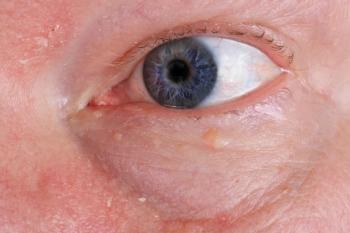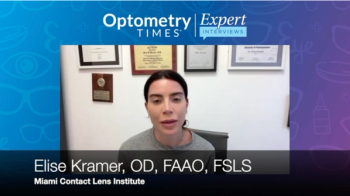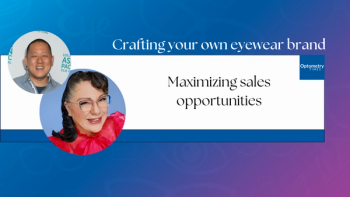
AAOpt 2023: A look at diabetes care historically to the present moment
Drs Paul Chous and Jeffry Gerson brought a new spin on the diabetes talk they've been presenting the last 18 years at the American Academy of Optometry annual meetings.
A. Paul Chous, MA, OD, FAAO, and Jeffry D. Gerson, OD, FAAO, copresented a discussion on diabetes care for the 18th year in a row together during the 2023 American Academy of Optometry meeting in New Orleans, this year presenting, "Diabetes Update: Then & Now."
Editor's note: This transcript has been lightly edited for clarity.
A. Paul Chous, MA, OD, FAAO:
I'm Paul Chous, and I'm here with my friend and colleague, Jeff Gerson. I'm an optometrist in Tacoma, Washington and I see a lot of diabetes. Where are you at, Jeff?
Jeffry D. Gerson, OD, FAAO:
I'm an optometrist, and Kansas City, in an OD/MD practice. And I think just like anybody else that has a primary care practice, we also see a lot of patients that happen to have diabetes and all the associated complications. So we'll be doing a talk, "Diabetes case studies: then and now." We've been fortunate enough to do a diabetes related talk here at the Academy for the last, how long has it been?
Chous:
I think, it's 18 years in a row.
Gerson:
And so normally what we do is a what's new in diabetes. And so this year's take is just a little bit different than what we've been doing for the last 18 years, but still, I think, some of the same general ideas of what we'd like to talk about.
Chous:
With a little bit of history. the Hesy-Ra, you'll learn who that was—an Egyptian priest who first described diabetes 2000 years ago. But we'll kind of bring it up to the present moment: how diabetes is treated now, how it was treated maybe even only 20 years ago, as well as treatments for diabetic eye conditions.
Gerson:
I think probably one of the big messages that we always try to get across is that a lot of times, especially meetings like this, what we hear people talking about is just diabetic retinopathy and how diabetes affects the eyes. But really, I think a big part of our message is that overall, diabetes care—general diabetes care—is really the foundation of good health care in people with diabetes, but also the foundation of good eye care in people with diabetes.
So we talk about much more than just what happens to people's eyes and what are medications for diabetes related eye disease, but we talk quite a bit about general diabetes care, it's treatments, and complications of diabetes in general.
Chous:
With some surprises, I think, with some good practice pearls, that even though you're not an endocrinologist, you can share some of these ideas with your patients, get their PCP involved in such a way that you can not only saved their vision, but improved their life quality and the duration of their lifespan. So we got some great ideas for that in our talk.
Gerson:
And I think really, the main takeaway is that as an optometrist, as you really just mentioned, there's so much more that we can do than only taking care of people's eyes, and that we really can play a big part and a patient's diabetes health care team.
Chous:
Thrilled to have you come to our talk, if you can, or if you already attended, thanks for attending.
Newsletter
Want more insights like this? Subscribe to Optometry Times and get clinical pearls and practice tips delivered straight to your inbox.













































